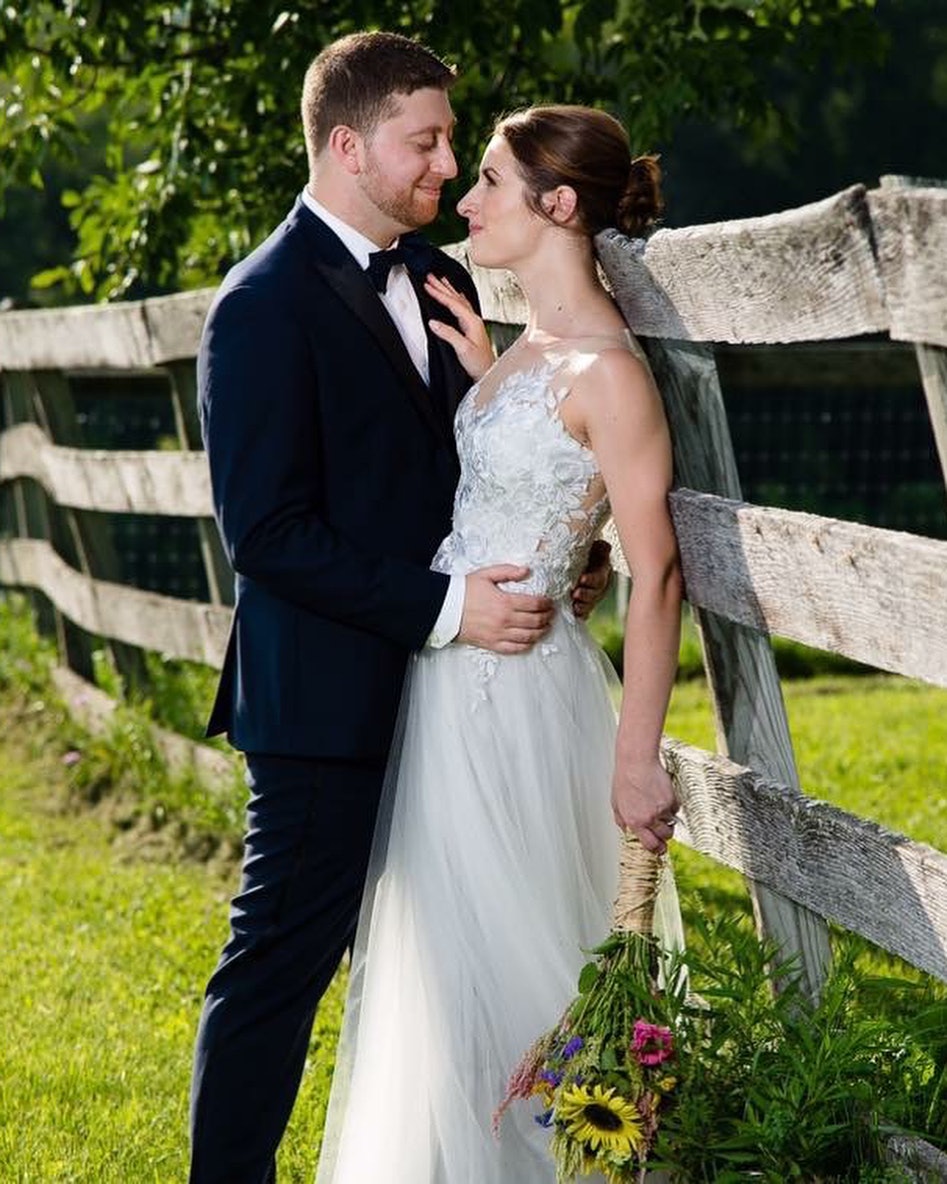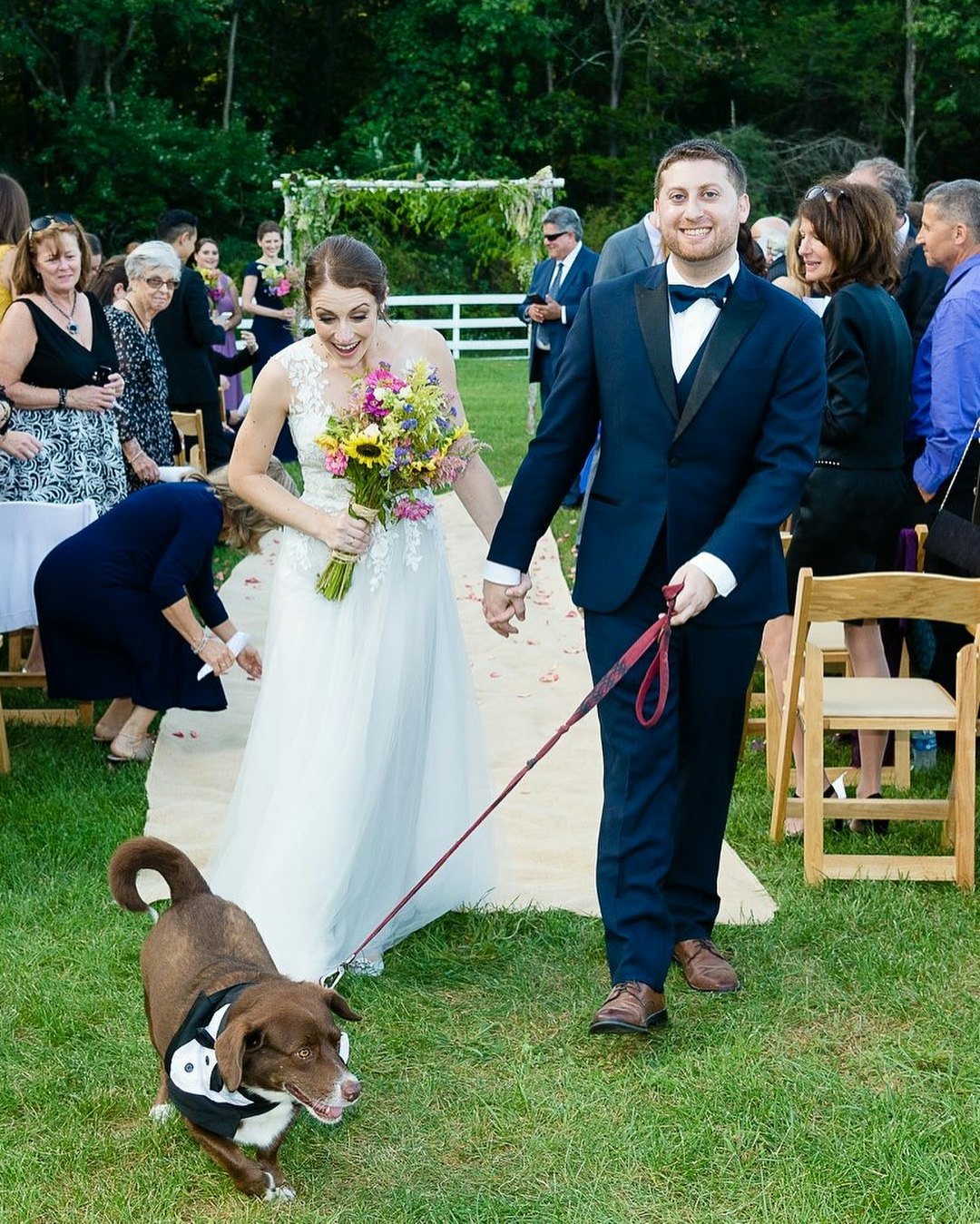Some women have been planning their dream wedding since they were old enough to understand weddings. I’m not one of those women. I knew that I wanted a big, fun celebration, and I couldn’t wait for the day to happen. My then-fiancé and I even started compiling our guest list the same night that he proposed. But the thing I really cared about was the day itself, not the year of planning leading up to it. When people ask why my husband planned our wedding, this is what I say: Because he loves logistics, and I can’t stand them.
I’d always considered myself to be pretty organized — my classmates didn’t vote me Most Dependable in high school for nothing. Then I met my husband, and "organized" got a whole new meaning. When we first got together, he made a spreadsheet with all of our date nights, both past and forthcoming. On our second anniversary, he asked me about my 10-year plan. As soon as the wedding-planning began, I spent one day looking at venues online before I texted him at work: "I can’t do this." I was overwhelmed by the cost and the options, and — like applying for financial aid or filing my taxes — I wanted to put it off indefinitely.
My husband, on the other hand, couldn’t wait to plan. Within a month of his surprise proposal in Paris (followed by a surprise engagement photo shoot around the city the next morning, naturally), he had made a spreadsheet of potential venues. We poured over photos of our options together — that part I could handle, at least. Though we’d originally wanted to go with a venue that offered all-inclusive wedding packages (catering, bar services, rentals, etc.), we fell in love with a barn in Hudson, New York, instead. This is what it included: the use of the barn. It would be up to us to hire and coordinate every other vendor.
To say that my husband invested some time into this would be a gross understatement. Together, we decided on the perfect entertainment (a ’90s cover band from Brooklyn) and the perfect caterer (upscale barbecue cooked on a giant grill right at the venue), but I left the rest of the decisions in his hands. With input from me along the way, he researched and found the most cost-effective photographer, transportation company, photo booth rental, baker, florist, and rental service for linens and furniture. He contacted them all, drew up the contracts (I knew marrying a lawyer was a good decision!), and priced it all out to make sure we were staying within our budget.
But that wasn’t all. We decided to go DIY for our decorations (because apparently hiring all of our own vendors wasn’t challenging enough). He created a Pinterest account and collected ideas for vintage-inspired floral arrangements and table centerpieces. He would text me at work and say, "So for the centerpieces, I’m thinking a wood slab as a base, and on top of that, a mason jar wrapped in burlap and filled with flowers and a wine bottle decorated with little twinkle lights." My response: "Works for me!" It’s not that I didn’t care — I cared a lot. I apparently just cared a whole lot less than my partner did.
When acquaintances would ask, "So, is your fiancé helping to plan the wedding at all?" I would just laugh. I’m not sure who decided that, in heterosexual marriages, the bride does the planning. Perhaps it is because the bride’s family traditionally takes on the majority of the expenses, so it is considered to be more "her" event than her and her future husband’s shared event. Though my parents were financially supporting the wedding, I explained to them early on that I intended our wedding (yes, our wedding, not my wedding) to be a collaborative process. This wasn’t just my day, and it didn’t make any sense to me that only I should get a say.
But I think it’s a bit more steeped in patriarchy than that. Just as it is assumed that women are more domestic and more occupied with aesthetics than their male counterparts, it is assumed that women are obsessed with having their perfect wedding. I didn’t see myself as a "blushing bride," and I had no desire to feel like a princess on my wedding day. I wore a dress with a gray skirt. I didn’t toss my bouquet, or take my husband’s last name, and there wasn’t a chance of me letting my husband tug a garter down my thigh with his teeth.
I did want a beautiful wedding, but so did my husband, and he made sure that it happened. I have no problem admitting that I pretty much just sat back and admired his work. Perhaps things are changing — in 2019, WeddingWire reported that, while brides still take on 54% of the planning process, grooms account for a reported 25% of the responsibility. That means the average groom is still doing less than half the work, but I feel pretty confident that my man isn’t the only one with a passion for selecting tablecloth colors.
After the wedding planning was finished, my husband planned our 16-day Southeast Asian honeymoon. He scheduled each day to the minute (even include my much-needed daily nap times) and priced it out to the dollar, taking guesses as to what I might order to eat at the restaurants he had on our itinerary (yes, seriously). When he was done, he was so disappointed that there was nothing left to arrange that I suggested he quit law and become a wedding planner. But as he explained, it’s not so much the process he loves — it’s the process of planning for us. And that’s what made our wedding day so special, I think. Though he played a far more active role in the logistics than me, we planned our day together, and that’s how we really made it ours.
Source: Read Full Article

